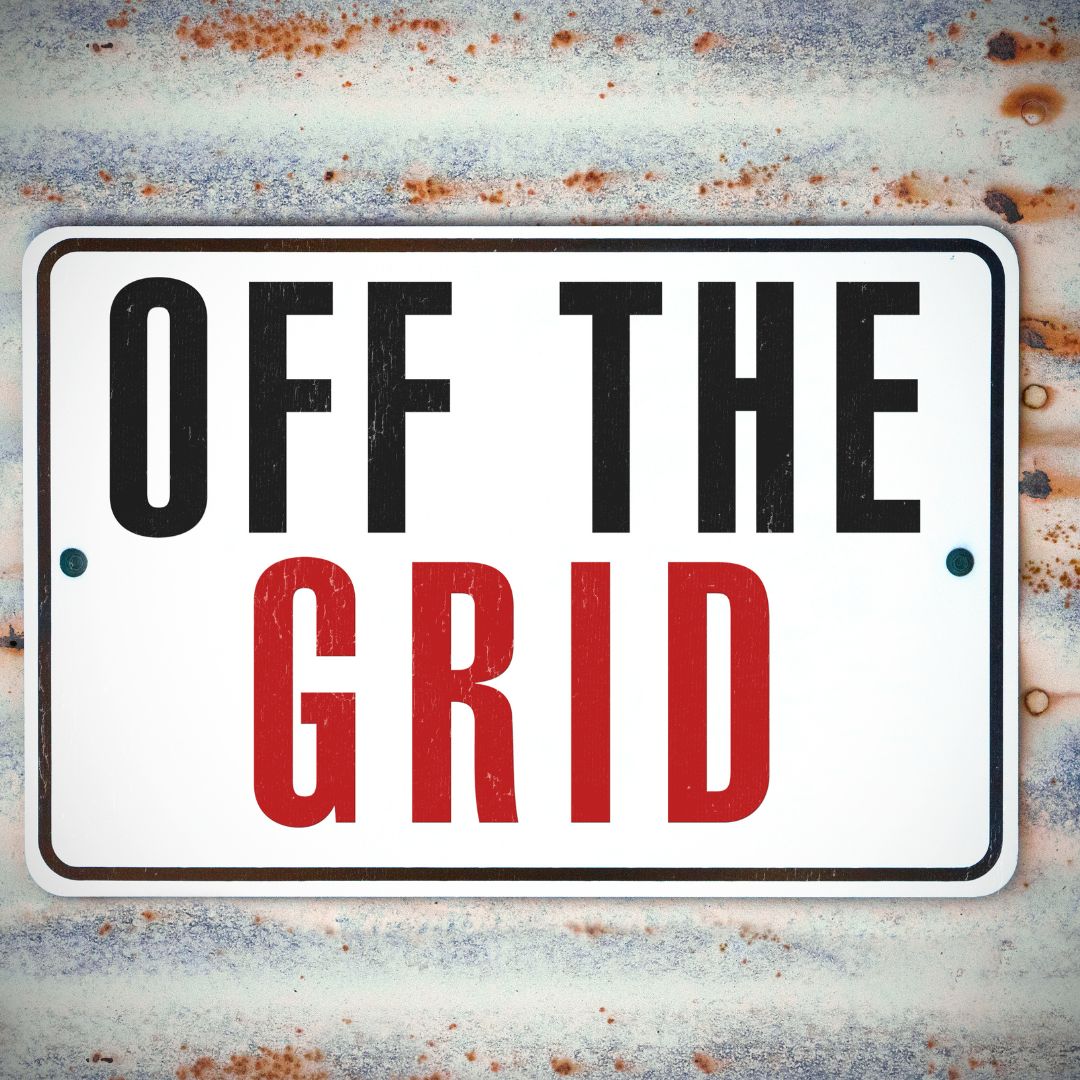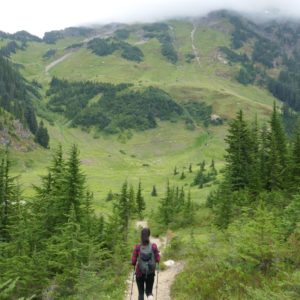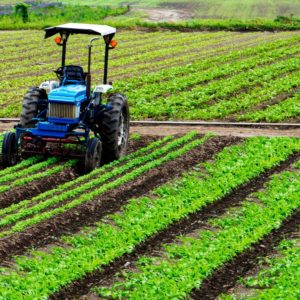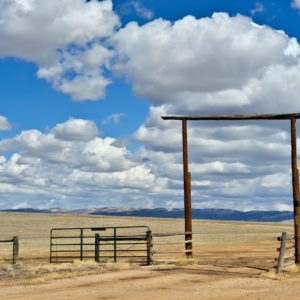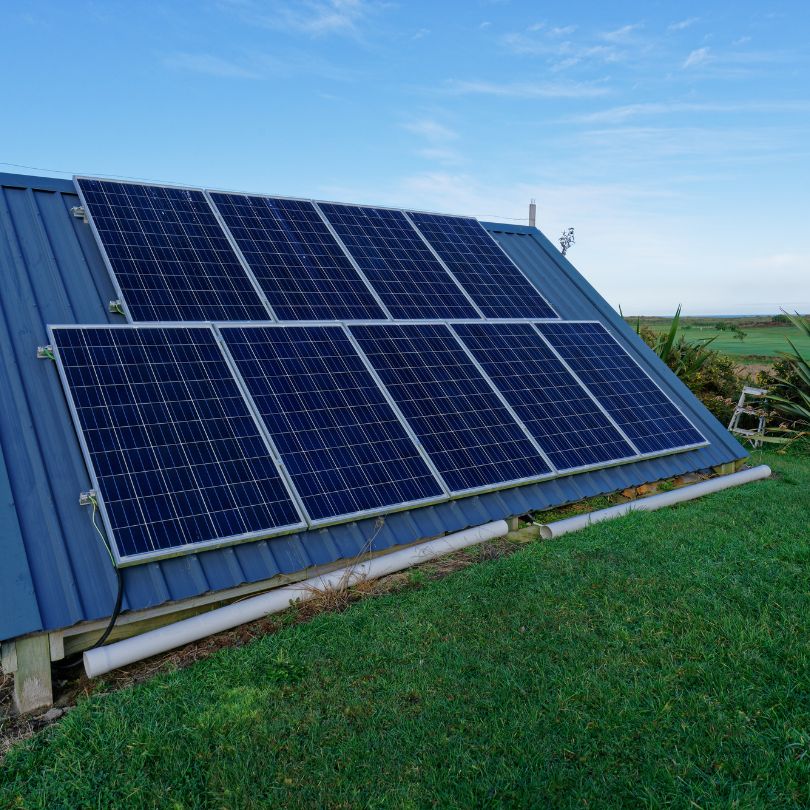
Wyoming Off-Grid Land For Sale with Owner Financing: Embrace Sustainable Living in the Wild
Introduction
Are you captivated by the idea of living off the grid, immersed in the untamed beauty of Wyoming? Imagine owning a piece of land where you can create a sustainable haven, disconnected from the hustle and bustle of modern life.
Wyoming offers a remarkable opportunity to embrace off-grid living, and the added advantage of owner financing makes it even more accessible. In this blog post, we will delve into the world of Wyoming off-grid land for sale with owner financing, exploring the benefits, considerations, and the process of finding your perfect slice of paradise.
Wyoming as an Ideal Location for Off-Grid Living
The Wild Charms of Wyoming
Wyoming is a state known for its untouched natural beauty and wide-open spaces. From the majestic peaks of the Rocky Mountains to the sprawling plains and picturesque national parks, Wyoming offers a breathtaking backdrop for those seeking an off-grid lifestyle. The state’s rugged terrain and diverse ecosystems provide endless opportunities for exploration and outdoor adventures.
Whether you are captivated by the idea of waking up to panoramic mountain views, witnessing the awe-inspiring wildlife, or immersing yourself in the tranquility of nature, Wyoming has it all. It’s a place where you can escape the chaos of city life and find solace in the simplicity and purity of the wild.
Abundant Wildlife and Outdoor Recreational Opportunities
Wyoming is a paradise for outdoor enthusiasts. The state is home to a rich variety of wildlife, including majestic species like elk, deer, bison, and moose. Birdwatchers can marvel at the sight of bald eagles, golden eagles, and various other avian species. The abundance of wildlife adds an enchanting element to the off-grid living experience in Wyoming.
Beyond the wildlife, Wyoming offers a plethora of outdoor recreational opportunities. The state boasts vast wilderness areas, national forests, and numerous hiking trails that wind through stunning landscapes. Fishing enthusiasts can cast their lines in pristine lakes, rivers, and streams, while hunters can pursue their passion in the vast expanses of public land. With ample opportunities for camping, horseback riding, mountain biking, and winter sports like skiing and snowboarding, Wyoming truly caters to the adventurous spirit.
Favorable Climate Conditions for Off-Grid Living
The climate in Wyoming is characterized by warm summers and cold winters, making it an ideal setting for off-grid living. The state experiences a semi-arid climate, with low humidity and a good amount of sunshine throughout the year. This weather pattern allows for efficient use of solar energy, making it easier to harness the power of the sun for off-grid electricity generation.
Additionally, the strong and consistent winds in certain parts of Wyoming create favorable conditions for wind power generation. Wind turbines can be a reliable source of renewable energy, further enhancing the sustainability of off-grid living in the state.
The cold winters provide an opportunity for utilizing alternative heating methods, such as wood-burning stoves or geothermal systems. With careful planning and the right infrastructure in place, off-grid homeowners can stay cozy and comfortable even in the coldest months.
Wyoming Off-Grid Land For Sale with Owner Financing
Understanding Off-Grid Land
Defining Off-Grid Land
Off-grid land refers to properties that are not connected to public utilities such as electricity, water, or sewage systems. These properties are self-sufficient in terms of energy generation, water supply, and waste management. Off-grid living allows individuals to disconnect from the conventional grid and embrace a lifestyle focused on sustainability, self-reliance, and a closer connection with nature.
Living off-grid typically involves utilizing alternative energy sources like solar panels, wind turbines, or geothermal systems to generate electricity. Water sources may include wells, springs, or rainwater collection systems. Waste management systems can range from composting toilets to septic systems that minimize the impact on the environment.
Factors to Consider When Purchasing Off-Grid Land
When searching for off-grid land in Wyoming, several factors should influence your decision-making process:
Accessibility to Amenities and Services
While the goal of off-grid living is to enjoy seclusion and a more sustainable lifestyle, it’s important to strike a balance between seclusion and accessibility. Consider the proximity of essential amenities and services, such as grocery stores, medical facilities, schools, and emergency services. Assess the distance to the nearest town or community to ensure that your basic needs can be met conveniently.
Availability of Natural Resources
One of the key considerations when purchasing off-grid land is the availability of natural resources necessary for sustainable living. Assess the land’s potential for water sources, such as wells or nearby rivers and streams. Consider the feasibility of installing renewable energy systems, such as solar panels or wind turbines, based on factors like sunlight exposure and wind patterns in the area. Understanding the land’s potential for supporting sustainable off-grid living is crucial for long-term viability.
Regulatory Considerations for Off-Grid Living in Wyoming
Before purchasing off-grid land, it’s important to familiarize yourself with the local regulations and zoning requirements in Wyoming. Each county or municipality may have specific regulations governing off-grid living, including restrictions on land use, building codes, and permitting requirements for alternative energy systems or waste management. Consulting with local authorities or an attorney who specializes in land and property regulations can help ensure compliance with relevant laws.
Unpacking Owner Financing
Owner financing offers a unique advantage to prospective buyers by allowing them to purchase land without relying on traditional mortgage lenders. In this arrangement, the seller acts as the lender, providing flexible financing options tailored to the buyer’s needs.
Unlike traditional loans, owner financing bypasses the stringent qualification criteria and lengthy approval processes of banks or financial institutions. It can be particularly advantageous for individuals who may not meet the strict credit requirements or have limited financial resources. Owner financing offers an alternative path to land ownership, opening doors that may have otherwise been closed.
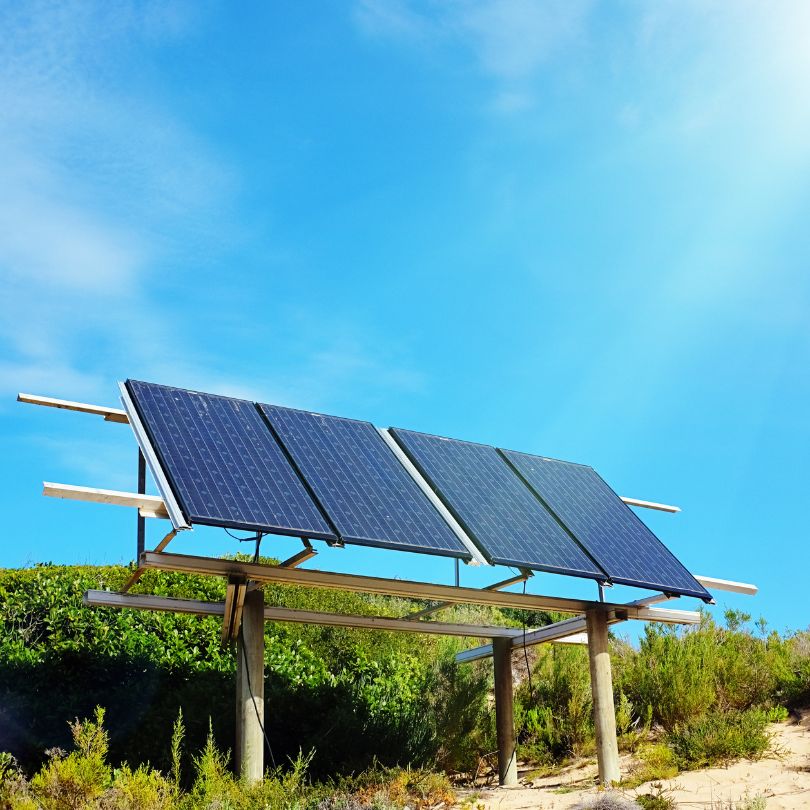
Flexibility in Financing Options
Owner financing provides more flexibility than conventional bank loans. Buyers can negotiate terms such as down payments, interest rates, and repayment periods directly with the seller. This flexibility allows for a more personalized and mutually beneficial financing arrangement.
The down payment amount can be negotiated based on the buyer’s financial situation and the seller’s preferences. Buyers may have the opportunity to make a smaller down payment, which can be advantageous for those who may not have significant cash reserves readily available.
Interest rates can also be negotiated between the buyer and the seller. This allows for potentially more favorable terms compared to traditional loans, where interest rates are determined by market conditions and the buyer’s creditworthiness.
The loan duration is another aspect that can be customized through owner financing. Buyers and sellers can agree upon a suitable repayment period that fits their respective needs and financial capabilities.
Unlocking Opportunities for Buyers
Owner financing opens doors for potential buyers who may have difficulty securing a traditional mortgage. It allows them to pursue their dream of owning off-grid land in Wyoming, empowering individuals to embrace sustainable living and self-sufficiency.
For those with limited credit history or a less-than-perfect credit score, owner financing can be a viable option. Instead of relying solely on creditworthiness, the buyer’s ability to make regular payments and demonstrate financial stability can be taken into account. This provides an opportunity for individuals who may have faced challenges in accessing traditional financing methods.
Owner financing also simplifies the purchasing process by eliminating the need for extensive paperwork, appraisals, and other requirements typically associated with conventional loans. The direct negotiation between the buyer and the seller streamlines the transaction, making it a more straightforward and efficient process.
In summary, owner financing expands access to land ownership, making it more inclusive and attainable. It offers flexibility in financing terms and can be an excellent option for individuals seeking off-grid land in Wyoming.
Wyoming Off-Grid Land For Sale with Owner Financing
Finding Wyoming Off-Grid Land for Sale
Navigating the Search for Off-Grid Land
Now that you’re ready to embark on your off-grid living journey in Wyoming, it’s time to find the perfect piece of land that aligns with your vision. Here are some avenues to explore:
Local Real Estate Agents Specializing in Off-Grid Properties
Connect with local real estate agents who specialize in off-grid properties in Wyoming. These agents have in-depth knowledge of the local market and can guide you in finding suitable land options that meet your specific requirements. They are familiar with the unique aspects of off-grid living, such as alternative energy systems, water sources, and zoning regulations.
Working with a real estate agent who understands the nuances of off-grid living can save you time and effort. They can help you identify properties that align with your preferences and assist in the negotiation and purchasing process.
Online Platforms and Websites for Land Listings
Utilize online platforms and websites that focus on land listings, such as land marketplaces and classifieds. These platforms often provide advanced search filters that allow you to narrow down your options based on location, price range, and specific off-grid amenities.
Take advantage of the search features to filter for off-grid properties and explore the available listings. Pay attention to detailed property descriptions, photos, and any information regarding existing infrastructure, access to utilities, and the potential for sustainable living.
Attending Land Auctions and Local Events
Consider attending land auctions and local events related to off-grid living and land sales in Wyoming. These gatherings provide opportunities to network with like-minded individuals, meet sellers or agents in person, and gain insights into available land parcels.
Land auctions can offer unique opportunities to purchase off-grid land at competitive prices. Stay informed about upcoming auctions and be prepared to participate in the bidding process.
Local events focused on sustainable living, homesteading, or rural property investments can also be valuable for expanding your knowledge and connecting with experts in the field. Take advantage of educational workshops, panel discussions, and networking opportunities to enhance your understanding of off-grid living and find potential leads on available land.
Exploring Government-Owned Land Options
In addition to private listings, consider exploring government-owned land options in Wyoming. State or federal land agencies often offer long-term leases or permits for individuals interested in off-grid living. Research the regulations, requirements, and available programs offered by agencies such as the Bureau of Land Management (BLM) or state land management departments.
Keep in mind that government-owned land may have specific restrictions, such as limitations on construction or land use. Be sure to understand the terms and conditions associated with leasing or using public land for off-grid purposes.
By exploring these various avenues, you can increase your chances of finding the ideal off-grid land in Wyoming that suits your preferences, budget, and sustainability goals.
Wyoming Off-Grid Land For Sale with Owner Financing
Evaluating Off-Grid Land Listings
Key Considerations when Reviewing Land Listings
When reviewing off-grid land listings, it’s essential to assess various factors to ensure the property aligns with your vision:
Property Size and Boundaries
Examine the acreage of the land and verify the boundaries to understand its dimensions and potential uses. Consider whether the size of the property meets your needs for activities such as gardening, livestock raising, or outdoor recreational pursuits.
Understanding the boundaries is crucial to avoid any potential encroachments or disputes with neighboring properties. Hire a professional surveyor if necessary to accurately determine the property’s boundaries.
Access to Roads and Transportation
Evaluate the accessibility of the property by considering the proximity of roads and transportation networks. Assess whether the land has suitable access points and any potential challenges during different seasons, such as heavy snowfall or muddy conditions.
Accessible roads are not only essential for your day-to-day living but also play a role in emergency situations and access to essential services. Consider the distance to the nearest town or community and the time it would take to reach amenities or medical facilities.
Availability of Water Sources
Water is a fundamental resource for off-grid living. Determine the availability of water sources on the property, such as wells, springs, or the potential to drill for water. Assess the quantity and quality of water to ensure it meets your needs for drinking, irrigation, and other purposes.
If the property lacks a reliable water source, explore options for water collection, storage, or alternative sources such as rainwater harvesting. Factor in the costs and feasibility of implementing water systems on the land.
Topography and Terrain Features
Consider the topography and terrain of the land. Evaluate the slopes, elevation changes, and natural features that may impact your plans for construction, farming, or other activities. Steep slopes or rocky terrains may present challenges for building infrastructure or cultivating crops, while flat areas may be more suitable for certain purposes.
Understanding the land’s topography can help you make informed decisions about site selection, placement of structures, and optimizing the use of available space. Consider how the land’s features align with your vision for off-grid living.
Existing Infrastructure and Improvements
Take note of any existing infrastructure or improvements on the property. This may include structures, roads, utility connections, or other amenities that can save you time, effort, and costs in the development process.
Evaluate the condition of existing infrastructure and assess its compatibility with your off-grid lifestyle. Determine whether any modifications or upgrades are necessary to meet your specific needs. Existing structures such as cabins or outbuildings may provide temporary housing while you build your permanent off-grid home.
Thoroughly evaluating land listings based on these key considerations will help you identify properties that align with your off-grid living goals and minimize any potential challenges or surprises in the future.
Wyoming Off-Grid Land For Sale with Owner Financing
Negotiating Owner Financing Terms
Crafting Favorable Owner Financing Terms
When engaging in owner financing for your off-grid land purchase, it’s important to negotiate terms that align with your financial goals. Here are some key considerations:
Purchase Price and Down Payment
Negotiate the purchase price of the land with the seller. Take into account factors such as market value, the condition of the property, and any improvements or infrastructure present. Determine an appropriate down payment amount that works for both parties, considering your financial situation and the seller’s expectations.
A larger down payment may reduce the overall loan amount and potentially lead to more favorable financing terms. However, it’s important to ensure that the down payment is feasible for you without jeopardizing your financial stability.
Interest Rate and Loan Duration
Discuss the interest rate and loan duration for the owner financing arrangement. Factors such as market rates, your ability to repay, and the seller’s expectations will influence these terms. It’s essential to strike a balance between a reasonable interest rate that reflects market conditions and a loan duration that allows for manageable monthly payments.
Consider the impact of different interest rates and loan durations on the overall cost of financing. Calculate the total interest paid over the loan term to assess the long-term financial implications.
Drafting a Legally Binding Purchase Agreement
Once the terms are agreed upon, it’s crucial to draft a legally binding purchase agreement that outlines the specifics of the owner financing arrangement. This agreement should include details such as the purchase price, down payment, interest rate, loan duration, and any contingencies or conditions.
Engage the services of a qualified real estate attorney to review the agreement and ensure that your interests are protected. The attorney can help ensure that the terms are clear, enforceable, and in compliance with relevant laws and regulations.
A well-crafted purchase agreement provides clarity and transparency for both parties, minimizing the potential for misunderstandings or disputes down the line. It establishes the foundation for a smooth and successful owner financing transaction.
Wyoming Off-Grid Land For Sale with Owner Financing
Financing Off-Grid Infrastructure and Improvements
Developing Off-Grid Infrastructure
After acquiring your Wyoming off-grid land, you may need to invest in developing essential infrastructure. Consider the following:
Assessing the Cost of Infrastructure
Evaluate the cost of developing off-grid infrastructure such as renewable energy systems, water management solutions, and waste disposal methods. Obtain estimates from reputable contractors or specialists to guide your budgeting process.
Each off-grid property is unique, and the infrastructure required will depend on various factors, including your energy needs, water consumption, and waste management preferences. Take into account the specific characteristics of your land and consider both the initial investment and long-term operational costs.
Financing Options for Renewable Energy Systems
Explore financing options available specifically for renewable energy systems. Government programs, grants, tax incentives, or specialized loans may be available to support your investment in sustainable energy solutions.
Research local, state, and federal programs that promote renewable energy adoption and sustainability initiatives. These programs can provide financial assistance, favorable loan terms, or tax benefits to help offset the costs of installing solar panels, wind turbines, or other renewable energy systems.
Wyoming Off-Grid Land For Sale with Owner Financing
Considerations for Water and Waste Management Systems
Factor in the cost of establishing water collection, filtration, and storage systems, as well as sustainable waste management solutions. This may include the installation of rainwater harvesting systems, well drilling, water treatment equipment, and composting or septic systems.
Research local regulations and best practices for water and waste management in off-grid settings. Consider the environmental impact, long-term sustainability, and maintenance requirements of different systems. It’s essential to strike a balance between meeting your needs and minimizing the ecological footprint of your off-grid lifestyle.
By carefully assessing the costs and exploring financing options, you can plan and budget for the development of off-grid infrastructure and improvements that align with your vision for sustainable living.
Legal and Regulatory Considerations
Engaging an Attorney for Legal Advice
Throughout the process of purchasing off-grid land and navigating owner financing, it’s crucial to engage the services of an experienced real estate attorney. They will provide legal advice, review documents, and ensure compliance with local regulations.
An attorney specializing in real estate and land transactions can guide you through the legal aspects of the purchase agreement, ensuring that all terms are clearly defined and protecting your rights as a buyer. They can also conduct thorough due diligence on the property, reviewing title documents, surveys, and any potential encumbrances or liens.
Their expertise will be invaluable in identifying and addressing any legal issues or concerns that may arise during the transaction. They can provide guidance on local zoning and building regulations, helping you understand the requirements for developing your off-grid property.
Wyoming Off-Grid Land For Sale with Owner Financing
Understanding Property Taxes and Ongoing Costs
Be aware of property taxes associated with your off-grid land in Wyoming. Research the tax rates applicable to your specific location and understand any potential exemptions or deductions related to sustainable living or owner financing arrangements.
Additionally, consider the ongoing costs of owning and maintaining an off-grid property. This may include expenses such as property insurance, maintenance and repairs, renewable energy system maintenance, and any association fees if applicable.
By understanding the tax obligations and ongoing costs associated with your off-grid land, you can effectively plan your budget and ensure compliance with financial responsibilities.
Compliance with Local Regulations and Permits
Ensure compliance with local regulations and obtain any necessary permits for off-grid living in Wyoming. Each county or municipality may have specific requirements related to land use, construction, alternative energy systems, and waste management.
Research and understand the zoning regulations applicable to your property. Determine if there are any restrictions on the size or type of structures you can build, the use of renewable energy systems, or the disposal of waste.
Consult with local authorities, such as building departments or planning offices, to ensure that your off-grid plans align with the local regulations. Obtaining the necessary permits and approvals will help you avoid potential fines, penalties, or legal issues in the future.
Wyoming Off-Grid Land For Sale with Owner Financing
Moving and Settling into Off-Grid Living
Preparing for Off-Grid Living in Wyoming
As you embark on your off-grid living adventure in Wyoming, it’s important to make necessary preparations:
Embrace Self-Sufficiency
Embrace the mindset of self-sufficiency and sustainable living. Educate yourself about various aspects of off-grid living, such as gardening, preserving food, renewable energy systems, and waste management. Develop the skills necessary to maintain and thrive in an off-grid lifestyle.
Learn about permaculture practices, sustainable farming techniques, and water conservation strategies. Acquire knowledge about alternative energy systems, battery storage, and energy-efficient appliances to maximize the efficiency and sustainability of your off-grid home.
Building a Supportive Off-Grid Community
Connect with like-minded individuals in the off-grid community. Attend local events, workshops, or online forums to exchange knowledge, share experiences, and build a support network of fellow off-grid enthusiasts.
Engaging with the off-grid community provides opportunities for learning, collaboration, and support. You can gain insights from experienced off-grid dwellers, share resources and ideas, and find encouragement during the transition to an off-grid lifestyle.
Conclusion
With its untamed wilderness, abundant wildlife, and favorable climate, Wyoming offers an idyllic setting for off-grid living. By exploring the available off-grid land for sale with owner financing options, you can turn your aspirations into reality. Embrace the freedom, self-sufficiency, and sustainability that come with owning your own slice of off-grid paradise in Wyoming. Start your journey today and forge a remarkable connection with nature while building a sustainable future.
Embrace the wilderness and seize the opportunity to own your piece of off-grid land in Wyoming. Experience the freedom of sustainable living and create your sanctuary amidst nature’s beauty. Start your journey towards self-sufficiency today and embrace a life that truly connects you to the wild.
Wyoming Off-Grid Land For Sale with Owner Financing
Frequently Asked Questions (FAQs)
Q1: Can I live off-grid legally in Wyoming?
A1: Yes, living off-grid is legal in Wyoming. However, it’s important to comply with local regulations and obtain any necessary permits for off-grid living, including alternative energy systems, waste management, and construction projects. Familiarize yourself with the specific requirements of the county or municipality where your off-grid property is located.
Q2: Can I finance the purchase of off-grid land in Wyoming?
A2: Yes, financing options are available for purchasing off-grid land in Wyoming. In addition to traditional bank loans, owner financing is a common method for acquiring off-grid properties. Owner financing allows buyers to negotiate terms directly with the seller, offering flexibility in down payments, interest rates, and loan duration. Consult with the seller or a real estate professional to explore financing options that suit your needs.
Q3: What are the primary energy sources used for off-grid living in Wyoming?
A3: Off-grid living in Wyoming often relies on renewable energy sources such as solar power and wind energy. The state’s abundant sunlight and consistent wind patterns make it conducive to harnessing these renewable energy sources. Many off-grid properties in Wyoming utilize solar panels and/or wind turbines to generate electricity for their needs.
Q4: How do I find water sources for off-grid living in Wyoming?
A4: Water sources for off-grid living in Wyoming can include wells, springs, or rainwater collection systems. It’s essential to assess the availability of water sources on the property you are considering. Consult with local experts, such as well drillers or water resource professionals, to determine the feasibility and cost of accessing or developing water sources.
Q5: What are the main challenges of off-grid living in Wyoming?
A5: Off-grid living in Wyoming presents certain challenges, including the need to establish self-sufficient infrastructure, manage resources efficiently, and adapt to the region’s climate. Challenges can include access to water, managing energy generation and storage, dealing with harsh winters, and ensuring proper waste management. Thorough planning, research, and preparation can help mitigate these challenges.
Q6: Can I build a sustainable home on off-grid land in Wyoming?
A6: Yes, building a sustainable home on off-grid land in Wyoming is possible. Consider incorporating eco-friendly and energy-efficient design principles, utilizing renewable energy sources, implementing water conservation measures, and using sustainable building materials. Consult with architects, builders, or sustainable living experts to explore the best practices for constructing a sustainable off-grid home.
Q7: Are there tax benefits for off-grid living in Wyoming?
A7: Wyoming offers certain tax benefits related to off-grid living. Depending on the county and specific circumstances, there may be tax incentives for renewable energy systems, property tax exemptions for off-grid properties, or deductions for sustainable living practices. It’s advisable to consult with a tax professional or research local tax regulations to understand the potential benefits available in Wyoming.
Q8: Can I raise livestock on off-grid land in Wyoming?
A8: Yes, raising livestock is a possibility on off-grid land in Wyoming, but it’s important to consider factors such as land size, zoning regulations, and available resources. Determine if the property provides sufficient grazing areas, access to water sources, and appropriate shelter for livestock. Additionally, familiarize yourself with any local regulations or restrictions related to livestock farming.
Q9: How can I ensure internet connectivity while living off-grid in Wyoming?
A9: Achieving internet connectivity while living off-grid in Wyoming can be facilitated through various options. Satellite internet, cellular data plans, or fixed wireless internet providers can offer solutions for remote locations. Research and compare service providers in your specific area to determine the most suitable option for your off-grid internet needs.
Q10: Is off-grid living in Wyoming suitable for families with children?
A10: Off-grid living in Wyoming can be suitable for families with children, but it requires careful planning and consideration of their specific needs. Factors to consider include access to education, healthcare services, socialization opportunities, and ensuring a safe and nurturing environment for children. Assess nearby communities, homeschooling options, and available resources to determine if the off-grid lifestyle aligns with your family’s goals and requirements.
Wyoming Off-Grid Land For Sale with Owner Financing
